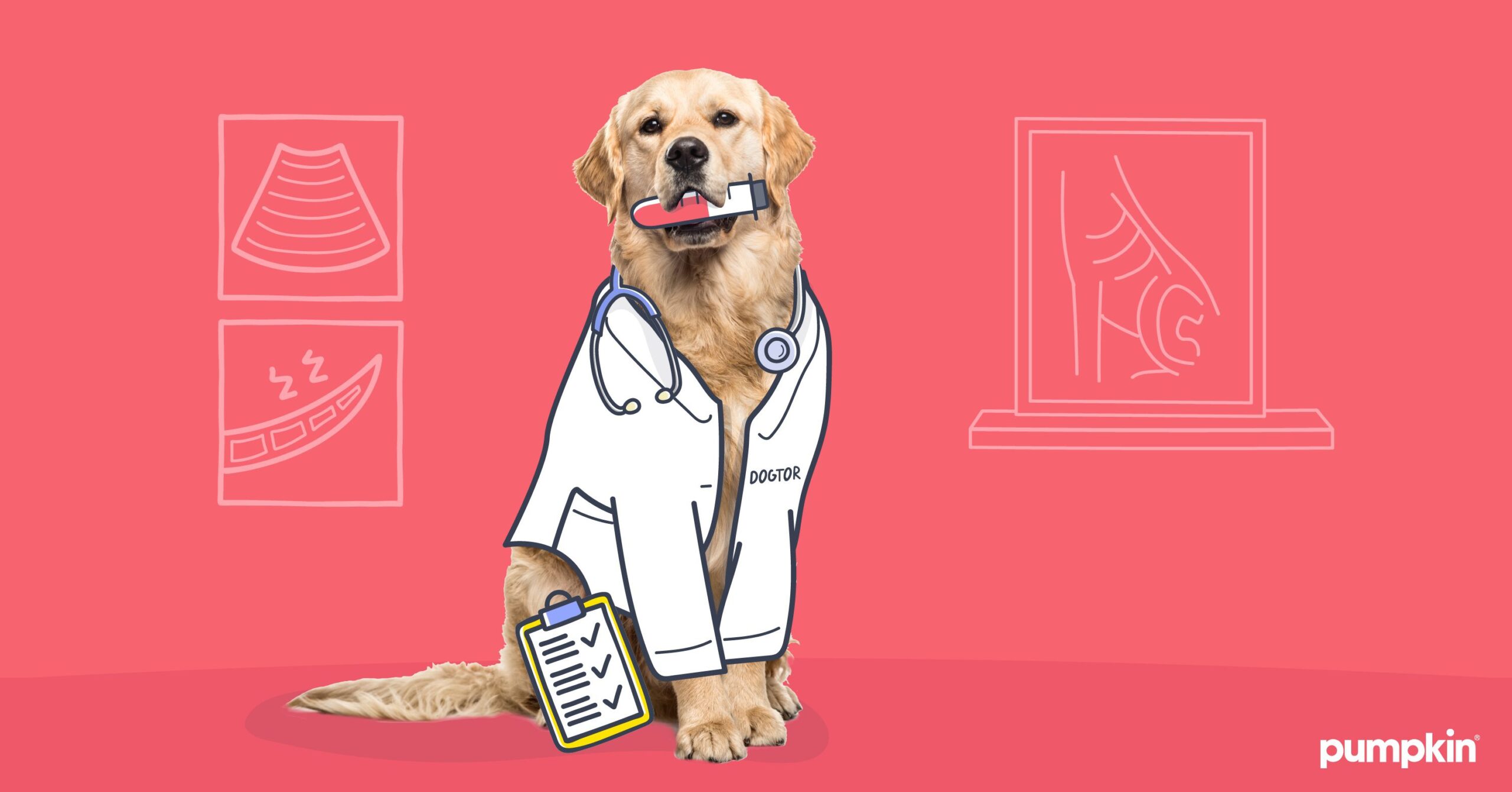Key Points
- Certain pet insurance plans may cover diagnostic testing prescribed for eligible accidents and illnesses.
- Additional riders may be available and necessary to cover routine wellness testing.
- It’s much easier for veterinarians to provide the best care for covered conditions when pet parents are insured.
Certain pet insurance plans cover eligible diagnostic testing that is prescribed for your pet’s unexpected accidents and illnesses. However, since providers and their policy options differ, you’ll want to learn about the types of diagnostic testing coverage available before signing up for a pet insurance plan.
Why is diagnostic testing important for pets?
Whether you suspect a broken paw and need to bring your pup in for an x-ray or your kitten is lethargic and your vet suggests a scan of their stomach, diagnostics are often needed to get to the bottom of mysterious medical issues.
Since our fur kids can’t tell us what’s wrong, diagnostic testing is especially important. Animals are often stoic and hide their discomfort from us, so diagnostic testing is often the only way we can find out what’s ailing our precious pets and make informed decisions on treatment.
How expensive are diagnostic tests in veterinary care?
Most pet parents would spare no expense to get answers for their sick or injured pet, but the reality is that vet bills can add up surprisingly fast.
According to Canine Journal, average costs associated with diagnostic testing include:
- $45 for a liver test
- $55 for a thyroid test
- $130 for a blood work panel
- $150 for a biopsy
- $175 for an ultrasound
- $250 for lab work
- $310 for a CT interpretation
- $1,345 for a CT scan
On the flip side, early diagnostic testing can often decrease long-term costs associated with common injuries and illnesses, as it allows veterinarians to get the clearest picture of your pet’s condition, and provide the right treatment from the getgo.
What are some diagnostic tests for pets?
Some examples of diagnostic tests for pets may include:
- X-rays or radiographs to look for bladder or kidney stones, bone fractures, foreign bodies, intestinal blockages, or periodontal disease.
- Ultrasounds to investigate fluid and soft tissue issues, such as heart and internal organ function, pregnancy, or tumor location.
- CT scans to take a detailed cross-sectional image that can assist in diagnosing abdominal abnormalities, bone, and joint disorders, or nasal and oral cavity diseases.
- MRIs to differentiate soft tissues from lesions and provide the maximum detail when looking for abscesses, blood flow, inflammation, or tumor growth.
- Blood work to help determine hydration status, nutrition, blood clotting ability, immune system response, infection levels, disease progression, and a host of other important health measures.
- Fecal exams to test for infections and parasites like hookworm, roundworm, tapeworm, whipworm, coccidia, and giardia.
- Urinalysis to assess your pet’s urinary tract, including the kidneys and bladder, providing insight into glucose regulation and liver function.
When do dogs and cats need diagnostic tests?
Diagnostic testing isn’t just for pets who have encountered sudden accidents or injuries, but also for healthy pets. Your veterinarian may want to do bloodwork or test for parasites during routine wellness visits to make sure everything’s in check. While this may also cost you some money, keep in mind that most standard accident and illness pet insurance plans aren’t intended to cover preventive care.
Puppies and kittens tend to receive the full gamut of diagnostic testing, including:
- Blood tests for anemia, as well as kidney, liver, and immune function
- Fecal tests to check for intestinal parasites
- Heartworm tests and testing for tick-borne diseases
What kind of diagnostics might a pet insurance plan cover?
Diagnostic testing prescribed for an unexpected accident or illness may be covered under some pet insurance plans:
- Accident coverage aka coverage for unexpected injuries and emergencies like bites, broken bones, lacerations, swallowed objects, torn ligaments, and toxic ingestions.
- Illness coverage aka coverage for unexpected illnesses and diseases like ear infections, hip dysplasia, and heart disease.
What diagnostic testing might not be covered by a pet insurance plan?
Most standard pet insurance plans do not cover:
- Wellness, routine, and preventive care: To receive diagnostic coverage on a wellness visit, you may need to purchase a preventive care coverage add-on. In younger animals, routine tests may be necessary to establish normal baselines, exclude congenital conditions, or determine the proper anesthesia amount.
- Pre-existing conditions: Many pet insurance plans do not cover pre-existing conditions. Though it makes perfect sense to seek payment assistance once your fur baby has been diagnosed with a health issue, most pet insurance is designed to specifically cover unexpected accidents or illnesses that arise in the future.
- Congenital or developmental disorders: Medical conditions that are present at birth, whether inherited or caused by the environment, are not typically covered by standard pet insurance plans unless a specific rider is purchased for an additional fee.
What do experts say about pet insurance coverage?
Veterinarians working on the front lines of pet care see the benefits of pet insurance coverage firsthand. They are often put in the difficult position of knowing what needs to be done to give their patients the best outcome, yet having to work within the limitations of what pet parents are able to afford.
With 3.45 million pets insured in North America alone, vets are seeing a rise in the number of insured animals coming through their practices – and that’s a positive trend. Not just for vets, but for pets and the people that love them!
It’s important to have the best pet insurance plan possible for your furry family member. Pumpkin Pet Insurance plans help cover unexpected accidents and illnesses so you have help saying ‘yes’ to the best care possible, regardless of the cost.
Our pet-loving care team is just a paw away if you have any additional questions about pet health coverage for diagnostic testing or need help with the enrollment process.




